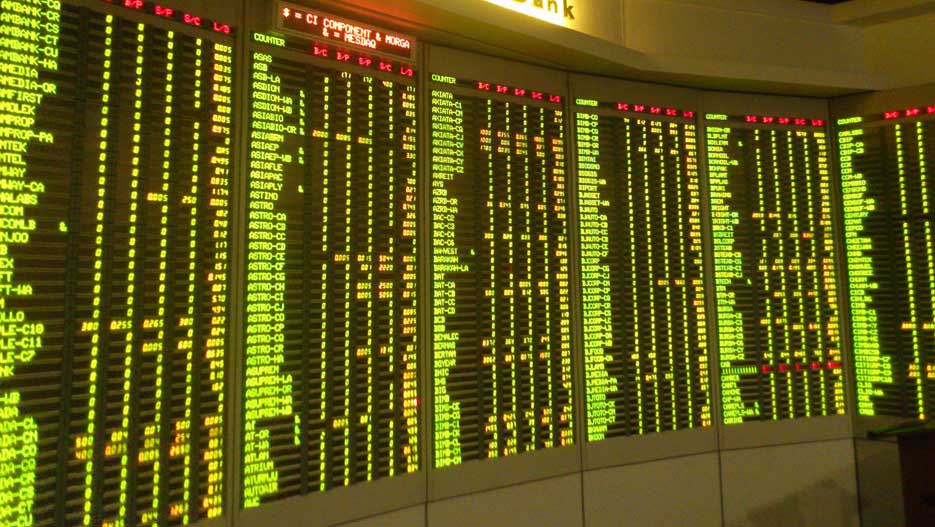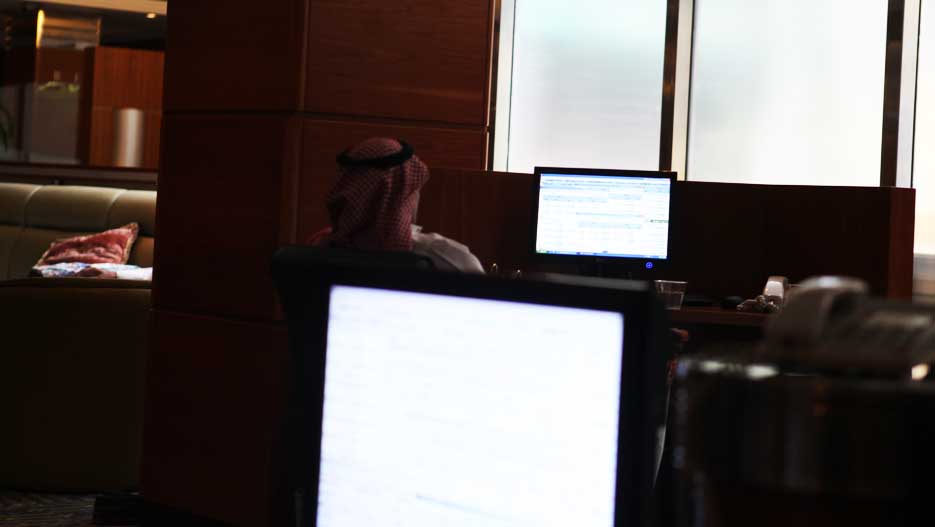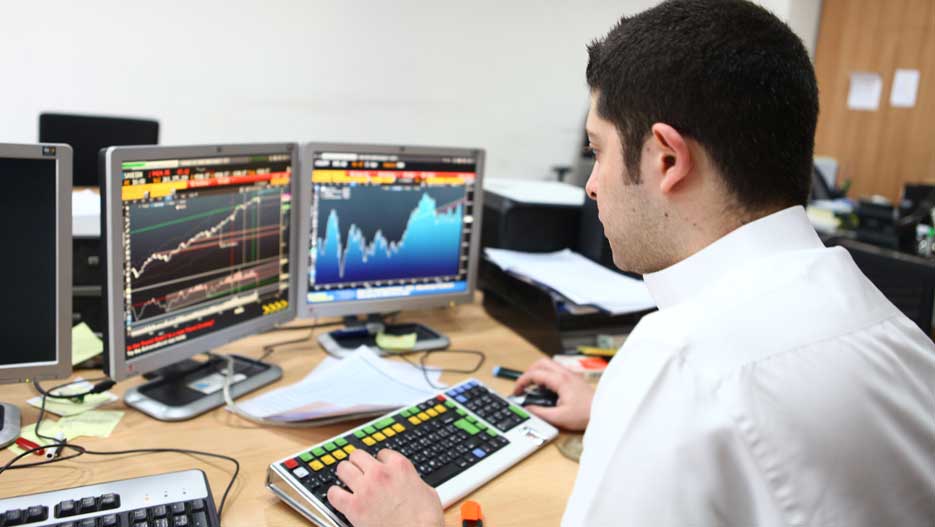Saudi Capital Markets: Open for Business, Soon for Foreign Investments
With the market regulator taking steps to give foreign institutions access to the Tadawul market in Riyadh, banks, fund managers and brokers in the region expect a boon and a boom for Saudi shares and new listings to come.

By Gérard Al-Fil
With the market regulator taking steps to give foreign institutions access to the Tadawul market in Riyadh, banks, fund managers and brokers in the region expect a boon and a boom for Saudi shares and new listings to come.
A few pieces of good news came from the Middle East in the summer of 2014. The Israeli war on Gaza, turmoil in Iraq and Libya and partially in Egypt confirmed many people’s views that the oil-rich region remains the world’s risky hotspot.
On July 22nd, the Capital Market Authority or CMA, the central bank and financial regulator of the kingdom, announced it would take steps to open the Saudi Stock Exchange in Riyadh for foreign institutional investors. The market, also called Tadawul and with a market capitalization of 531 billion dollars the biggest in the Gulf Arab region, shall be accessible as early as by the first quarter 2015. The free float is estimated between 150 billion to 200 billion dollars.
The market, also called Tadawul and with a market capitalization of 531 billion dollars the biggest in the Gulf Arab region, shall be accessible as early as by the first quarter 2015. The free float is estimated between 150 billion to 200 billion dollars.
For Dr. Boutros Klink, CEO at Standard Chartered Bank (Saudi Arabia), the timing could not be better “Many investment companies now understand the environment better, and have developed appreciation for the challenges.”

In contrast to the well-known and rather young stock market DFM in Dubai which opened for trading in the year 2,000, the Saudi pendant is not a newcomer. “The capital markets started very early in Saudi, maybe in the 60’s or even earlier than that. It was very simple, very preliminary, there were no complications at all, and there were no rules or regulations,” explains Abdullah Saud Al-Rashoud, the CEO at Blominvest KSA.
Riyadh – and not Jeddah – is the location of the most valuable stock exchange in the Middle East. While the rather liberal Jeddah is well-known for a high concentration of banks and insurers, all eyes are on the Saudi capital’s list of quotations when GCC market close.
With Saudi Basic Industries Corporation or SABIC, the most valuable Arab company is listed on the Tadawul bourse. After surpassing American plastics giants Dow Chemical, SABIC emerged as the biggest producer of petrochemicals worldwide. The firm has investments and production facilities in the West as well as in China.
SABIC is also considered a market indicator. If SABIC shares rise, it is a good sign for investors to buy. If SABIC shares fall in value, it usually means for traders “to go short”, meaning to sell.
SABIC is also considered a market indicator. If SABIC shares rise, it is a good sign for investors to buy. If SABIC shares fall in value, it usually means for traders “to go short”, meaning to sell.
The list of stocks also reflects Saudi Arabia’s change from a pure mon-basket (oil) economy to a diversified country with various industries and services.
Saudi Arabian Mining Company, also known as Ma’aden, is a high flyer at the Tadawul market. Its share prices tripled in the last five years as the firm. Ma’aden (Arabic for ‘metals’) successfully exploits the mostly untouched metals and minerals in the Western region of the kingdom. In addition, several listed insurance firms have outperformed the market index Tasi as young Saudis which make up to 60 per cent of the total population opt for health and motor insurance in a region where insurance penetration is less than two per cent.
Blominvest’s Al-Rashoud says he hopes that experiences traders have learnt their lessons from the crash in 2006 which followed a mega-rally in 2005, paired with an IPO mania. Al-Rashoud comments: “I think what happened in 2006 was a disaster for many people in Saudi. Many Saudis lost their savings that they had accumulated over many, many years. I would say that there was no regulation at that time.”
Asked how severe the Tadawul index was hit, the investment expert said “the gauge went down from 21,000 to 4,500. I think that was not expected in only two or three years. They lost 80 percent of their savings.”

The current boom seems is based on constant high oil prices, successes in the diversification of the economy and ample foreign investments into the kingdom which is the world’s biggest oil exporter.
In the 12-month period from July 2013 to July 2014 the Tadawul All-Share Index rose by 32 percent to 10,214 points.
In the 12-month period from July 2013 to July 2014 the Tadawul All-Share Index rose by 32 percent to 10,214 points.
The CMA’s move to reach out for foreign investors fits into foreign bank’s strategy, such as Standard Chartered Bank. “In Saudi Arabia, we operate an investment company licensed by the CMA. Saudi Arabia is a very important to us and we’re very pleased to be on the ground,” says CEO Dr. Klink.
Our strategy in the Kingdom is focused on connecting Saudi Arabia with our footprint across Asia, Africa, and the Middle East. But despite its liquidity, bonds and corporate bonds are still playing a marginal role in the Saudi investment universe.
“Bonds are not really popular in Saudi,” says Blominvest’s Al-Rashoud. “Usually people who hold bonds are the treasurers, banks, corporations and some of the wealthy individuals. If you look at the bond market, it’s not very liquid in the kingdom.”
According to Dr. Nasser Saidi, a leading independent economist in Dubai and former minister of economy in Lebanon, the vast majority of financing in the Middle East is self-financing (such as getting “pocket money” from family members or the clan) and bank loans, while in the U. S. and Europe capital markets have a an equal share in injecting money into firms.
“Bonds have been issued by the government of Saudi Arabia for many years, although in the recent past, the government has stopped issuing long-term bonds and primarily focused on managing liquidity by issuing instruments with maturities of less than one year,” says StandChart’s CEO Dr. Boutros Klink. He adds that “Standard Chartered is very keen to assist in developing the secondary trading market in bonds and sukuks in the Kingdom.”
Besides wooing foreign investors, Mohammed S. Alkhalil, president at FAD Investment and Development sees also huge potential in unlocking capital domestically as real estate is still the first choice for many Saudis. “It is a very attractive investment option for Saudis; in fact, the sector is just as attractive as the stock market. It tends to be easier to invest in real estate as opposed to other operational investments.”